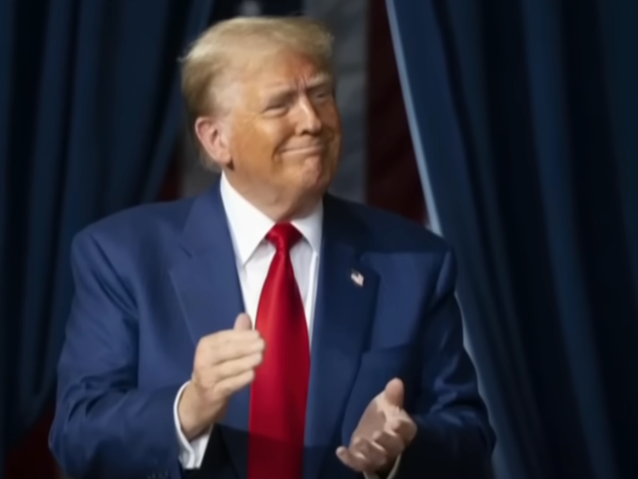Breaking News
Hail to The Real Teflon Don: Federal Charges Dropped in Trump Election Interference Case

Source: YouTube
In a major upheaval, the Trump election interference case has been dismissed. U.S. District Judge Tanya Chutkan granted Special Counsel Jack Smith's request to drop the case. This marked a significant moment in American legal and political history. Smith also dismissed his appeal in the classified documents case, effectively closing two high-profile investigations. The decision comes weeks after Trump's historic reelection, which upended the legal landscape.
Earlier, Smith filed two federal cases: the Trump election interference case during the 2020 polls and another involving classified documents removed from the White House. The cases, marked by charges such as conspiracy to obstruct an official proceeding, faced legal and political hurdles, including a Supreme Court ruling granting Trump presidential immunity for official acts. After Trump’s reelection in 2024, Smith petitioned to dismiss both cases, citing the constitutional principle that a sitting president should not be unduly encumbered by prosecution.
According to Smith, the dismissal wasn’t a reflection of the case's merits. Instead, it was driven by “two fundamental and compelling national interests”: protecting the office of the president from undue encumbrance and upholding the rule of law. Trump, on Truth Social, called the charges “empty and lawless,” accusing political opponents of wasting taxpayer dollars. His legal team's argument of presidential immunity, upheld by the Supreme Court, played a pivotal role in the case's collapse. WIth the Trump election interference case dead, the President is unburdened with the matter and can better focus his attention in guiding the country.
Why Did Special Counsel Jack Smith File to Dismiss the Trump Election Interference Case and the Trump Classified Documents Case?
Smith’s decision reflects a confluence of legal and political factors. The Supreme Court's ruling on presidential immunity created significant hurdles, limiting the scope of prosecution. This ruling forced Smith to alter his approach, but Trump's reelection ultimately made the cases politically untenable. Justice Department policy traditionally shields sitting presidents from prosecution.
With Trump set to assume office in January, Smith had little choice but to dismiss the charges. This move, he argued, safeguards constitutional integrity while recognizing the limitations of pursuing a sitting president. The dropping of these cases has sparked fierce debate. Critics allege that the Justice Department's slow pace enabled Trump to manipulate procedural safeguards and delay proceedings until his reelection. Supporters argue the outcome reinforces the importance of respecting institutional norms, even under extreme circumstances.
The Fate Awaiting Jack Smith and His Team After the Trump Election Interference Case
Special Counsel Jack Smith is expected to resign before Trump’s inauguration. Sources suggest that the incoming President intends to overhaul the Department of Justice, removing officials involved in his prosecution. The incoming administration plans to nominate staunch allies, including Pam Bondi as Attorney General, signaling a shift in the DOJ’s priorities. Smith’s departure marks the end of a contentious chapter in U.S. legal history. Appointed in 2022, Smith faced significant challenges in navigating politically charged cases.
While his team maintains that their view of Trump’s alleged crimes remains unchanged, the circumstances have made prosecution impossible. The implications for Smith's legacy are complex. Critics question his strategy and timing, arguing that the delay in charges undermined public trust. Others view his adherence to legal norms as a testament to the rule of law, even in the face of daunting political pressures.
Ramifications of the Trump Election Interference Case Dismissal
The dismissal has wide-reaching implications for the future of American democracy. Trump’s legal troubles have fueled debates over the limits of presidential power and accountability. His reelection sends a message that, in certain circumstances, political influence can override legal scrutiny. For Trump supporters, this outcome reaffirms their belief in his innocence and the politicization of legal institutions. For his opponents, the dropping of the Trump election interference case raises concerns about unchecked power and the erosion of democratic norms. Moving forward, this case sets a precedent that could embolden future presidents to exploit procedural protections. Legal experts warn that the system’s inability to hold Trump accountable risks weakening its capacity to address similar challenges in the future.
Do you approve or disapprove the dismissal of charges in the Trump election interference case? Tell us what you think about this historical precedent by sharing your comments below!
